Back to the Roots: Innovating with sustainable gastronomy
IFAD Asset Request Portlet
Asset Publisher
Back to the Roots: Innovating with sustainable gastronomy
17 June 2020What comes to mind when you hear the words “sustainable gastronomy”? Some of us focus just on the cuisine and think about delicious – and perhaps costly – dishes. Others see it as a passion for eating well, and still others as a set of dishes and culinary customs from a specific place. But sustainability is vital to the concept, and not only in terms of time.
Sustainability in this context means using natural resources responsibly, across agriculture, fishing and even food preparation, so that we can continue to use them in the future – while also looking after the environment.
In this sense, sustainable gastronomy is synonymous with cuisine that takes into account the origins of the ingredients: how they are grown and how they are brought to market and, ultimately, to our plates.
To raise awareness about the importance of sustainable gastronomy, in December 2016 the United Nations General Assembly designated 18 June as the Day of Sustainable Gastronomy, acknowledging gastronomy as a form of cultural expression related to the natural and cultural diversity of the world. In view of the current COVID-19 health crisis, sustainable gastronomy – celebrating seasonal ingredients and products, and contributing to the preservation of wildlife and culinary traditions – has become even more relevant.
IFAD, as an international financial institution dedicated to eradicating poverty and hunger in the rural areas of developing countries, seeks out initiatives that contribute to its mandate. Back to the Roots is an IFAD-funded project that promotes innovations in rural development using gastronomy as a way of connecting small farmers to markets.
Back to the Roots has worked on 14 innovative experiences in Bolivia, Chile and Peru. The project has local associates in each of the three countries.
CORPAPA – Peru
This organization brings together more than 2,300 families producing 900 varieties of Andean tubers, including potatoes, mashua, oca and olluco. They supply weekly markets in big cities, along with hotels and restaurants in Lima. Having a presence in Peru’s flagship restaurants has opened up opportunities to export tubers to France, Qatar, the United Arab Emirates and the United Kingdom.

The magnificent landscapes of the Latin American highlands are the birthplace of a vast array of tubers, including potatoes, that have fed the people living there since ancient times. (© IFAD/ Back to the Roots Peru)
Women have always played a key role in growing potatoes on both a small and large scale, from seed conservation and selection to harvesting, storage and marketing. (© IFAD/ Back to the Roots Peru)
Peru has thousands of varieties of potatoes, including 1,500 varieties that have been catalogued as native. (© IFAD/Back to the Roots Peru)
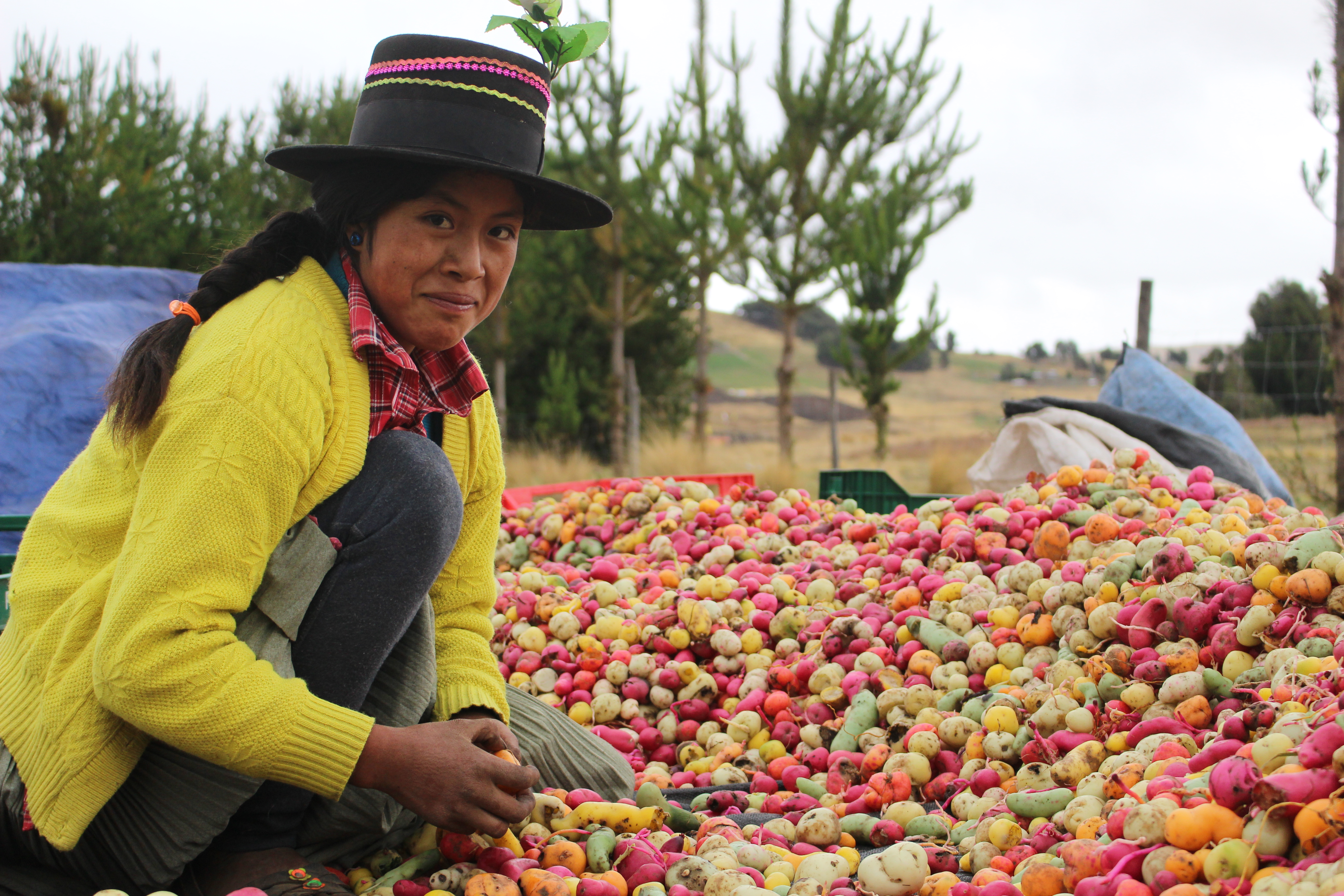
Adding value to native potatoes through gastronomy, in Peru and globally, could generate opportunities for rural young people and local agricultural enterprises. (© IFAD/Back to the Roots Peru)
MANQ’A schools – Bolivia
The MANQ’A schools in Bolivia have trained more than 3,000 at-risk rural young people in restaurant services and gastronomy. They are committed to recognizing, developing and integrating smallholder agriculture products through innovative gastronomy offerings at their own restaurant in La Paz and through initiatives in peri-urban areas. Manq’a is promoted by the Interchurch Organization for Development Cooperation (ICCO).
The Manq’a restaurant serves up opportunities for low-income youth, inspiring people to eat healthy and promoting sustainable, environmentally sound smallholder production.
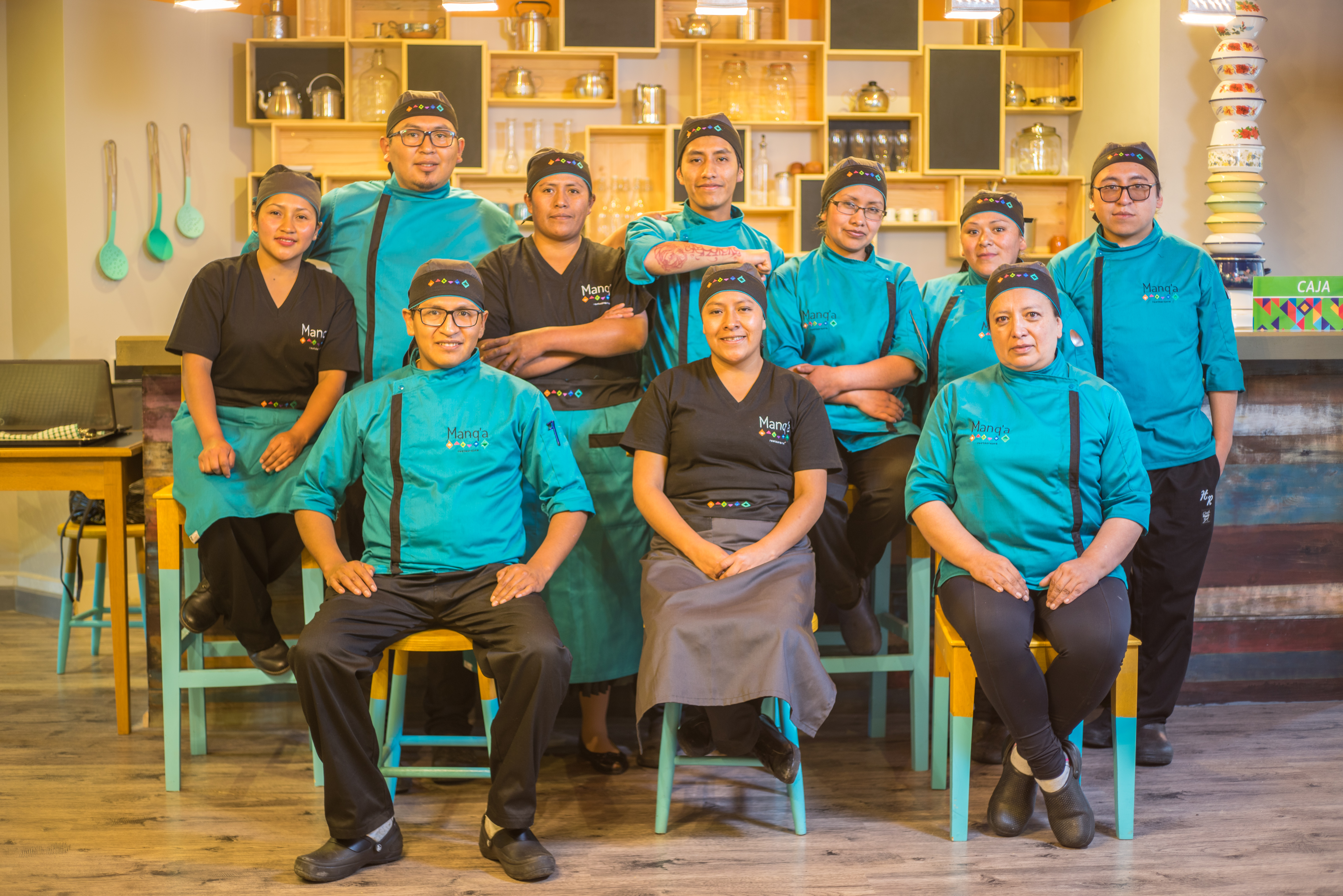
Migrant youth in the countryside find opportunities in gastronomy to work, undertake initiatives and enhance their identities by cooking with traditional local foods (© IFAD/ Back to the Roots Bolivia)
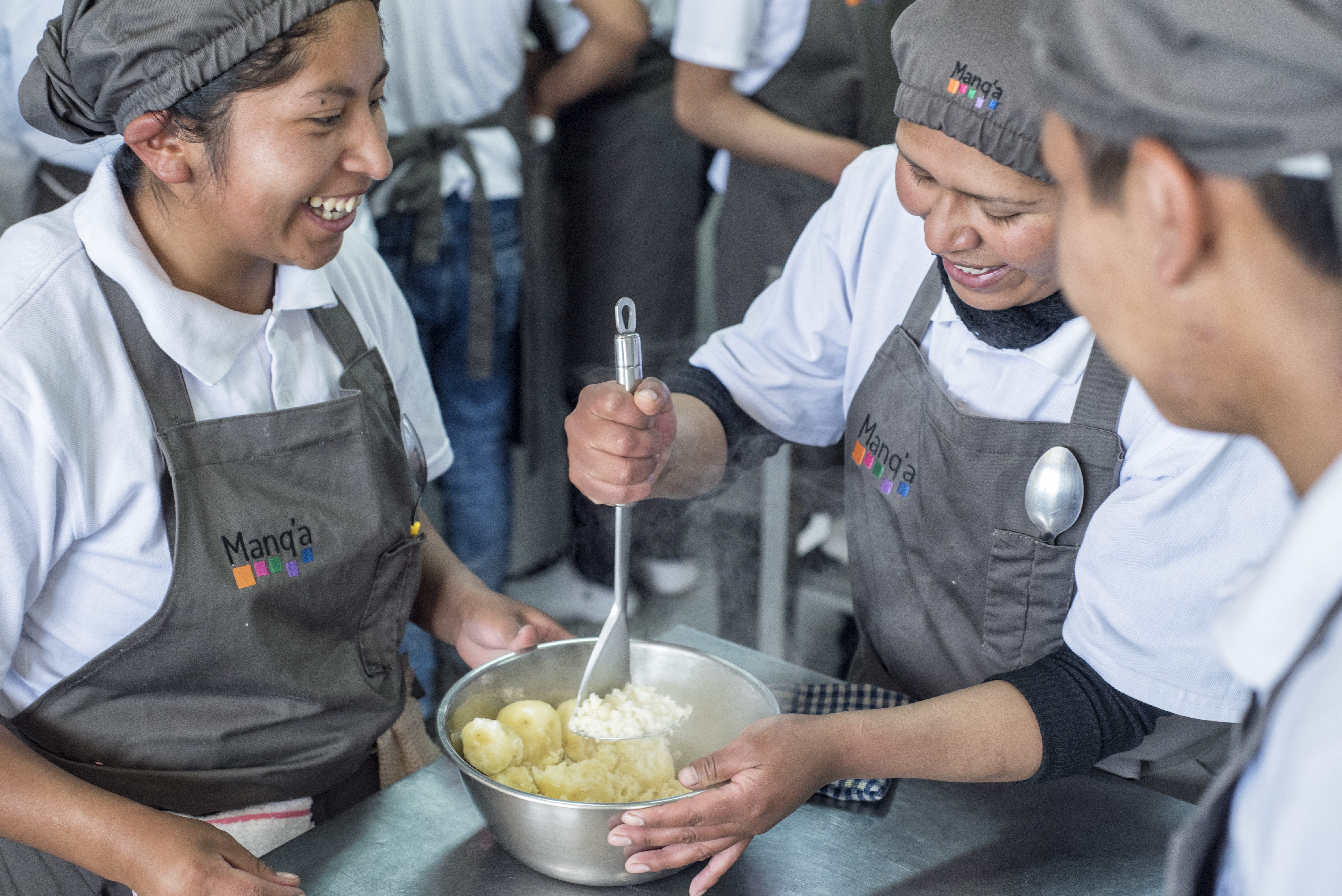
Manq’a youth prepare to take on job challenges with training and mentoring that strengthens their entrepreneurial spirit. (© IFAD/Bolivia Juan Manuel Rada)
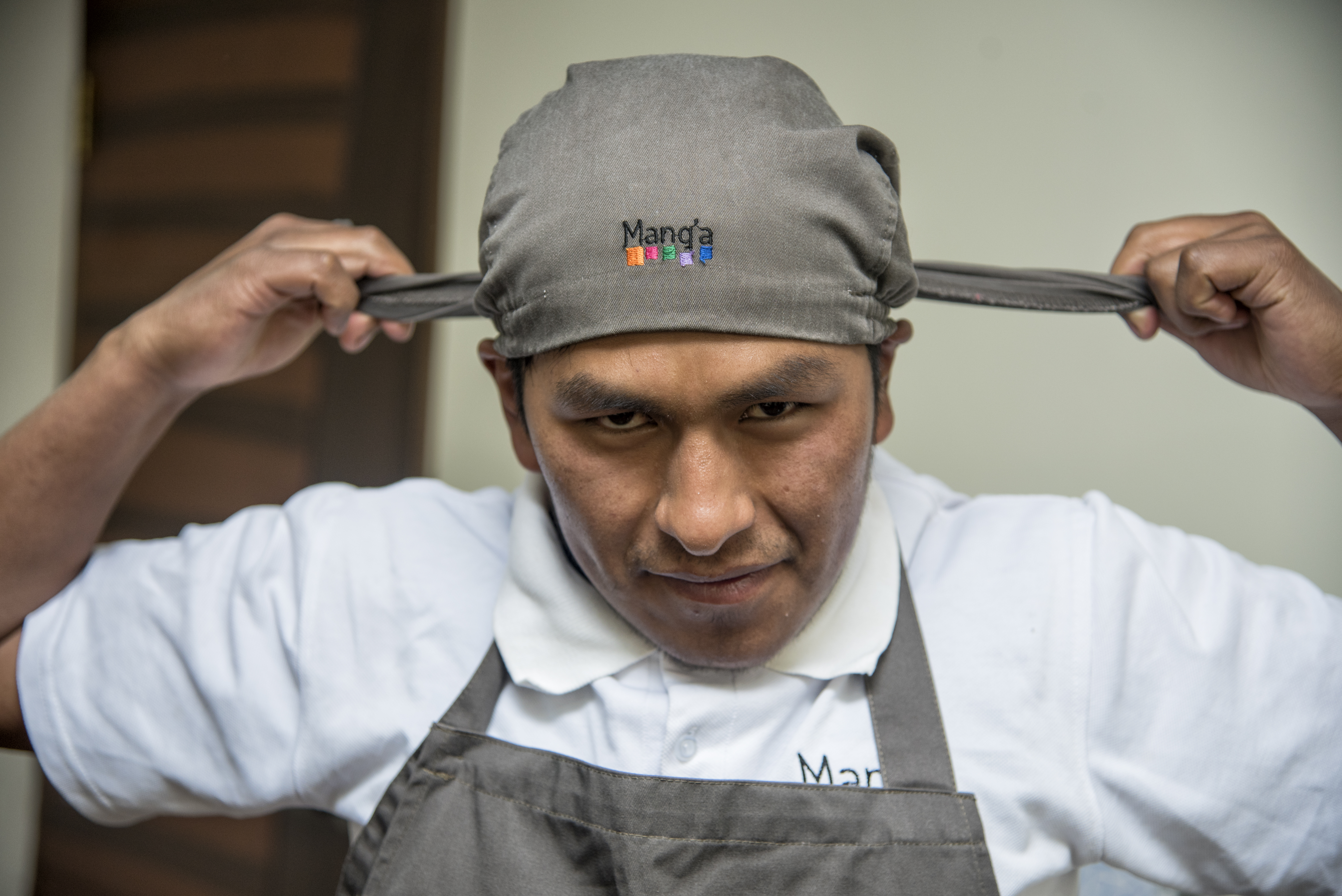
Maqueo Sabores Étnicos – Chile
Maqueo Sabores Étnicos (Ethnic Flavours) is a woman- and family-owned microenterprise of Mapuche origin dedicated to producing foods with wild fruit collected sustainably from native forests in the Lake Maihue area (“land of the maqui” in the Maqueo language), located in the Futrono commune of Chile’s Los Rios region. The base products are all collected by women from the community, keeping alive ancestral rituals of working with nature, involving 30 families in the Lake Maihue community. Their products are sold at gourmet shops nationally and in their Maqueo Sabores Étnicos cafeteria, which also offers dishes made with seasonal local raw ingredients.

The Maqueo products are collected with sustainable gathering methods and made artisanally, using forest fruits such as maqui, according to what is in season. (© IFAD/ Back to the Roots Chile)
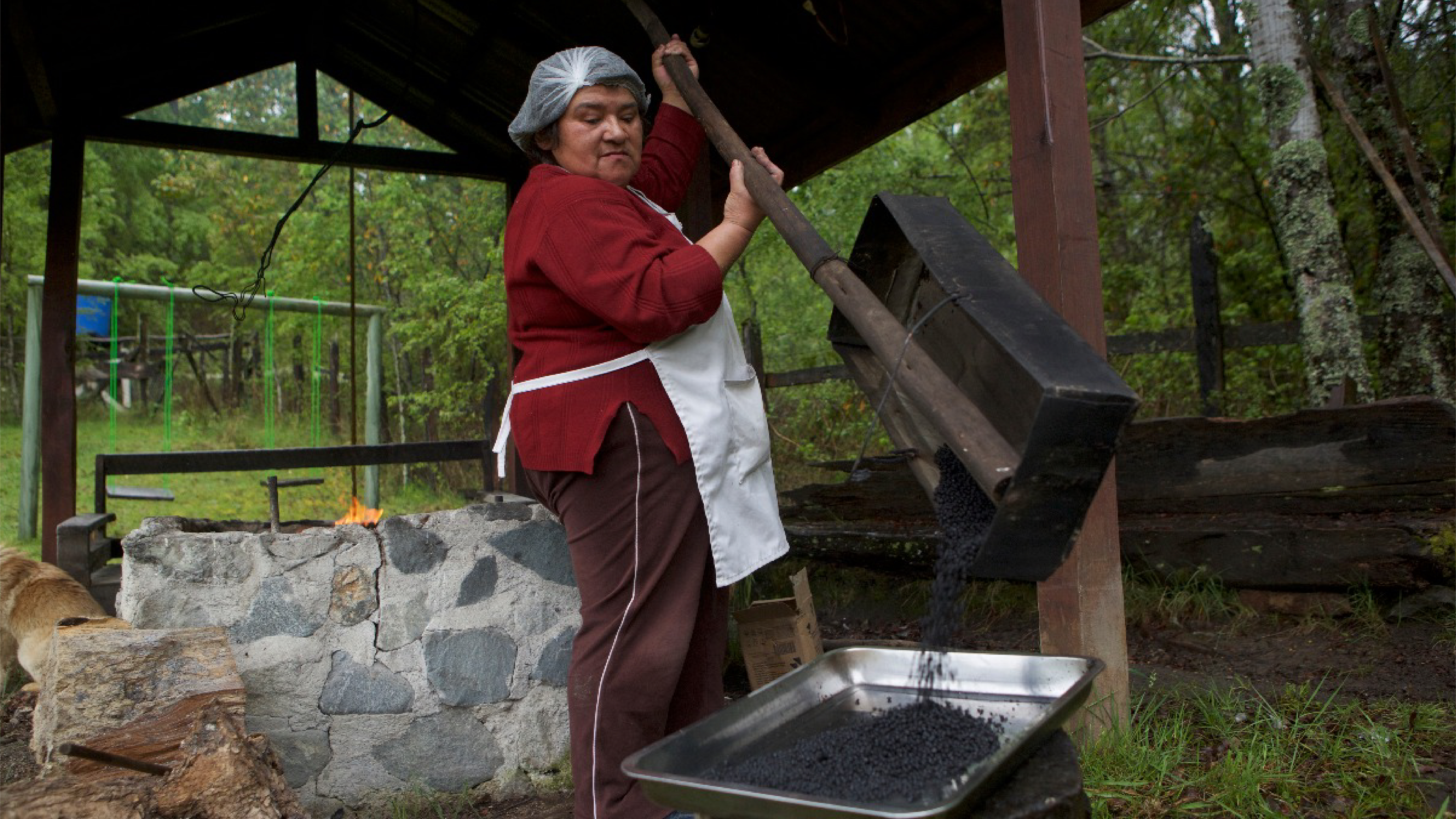
Maqui is picked and toasted by the community in a way that is sustainable and in tune with the human and natural environment. (© IFAD/Back to the Roots Chile)
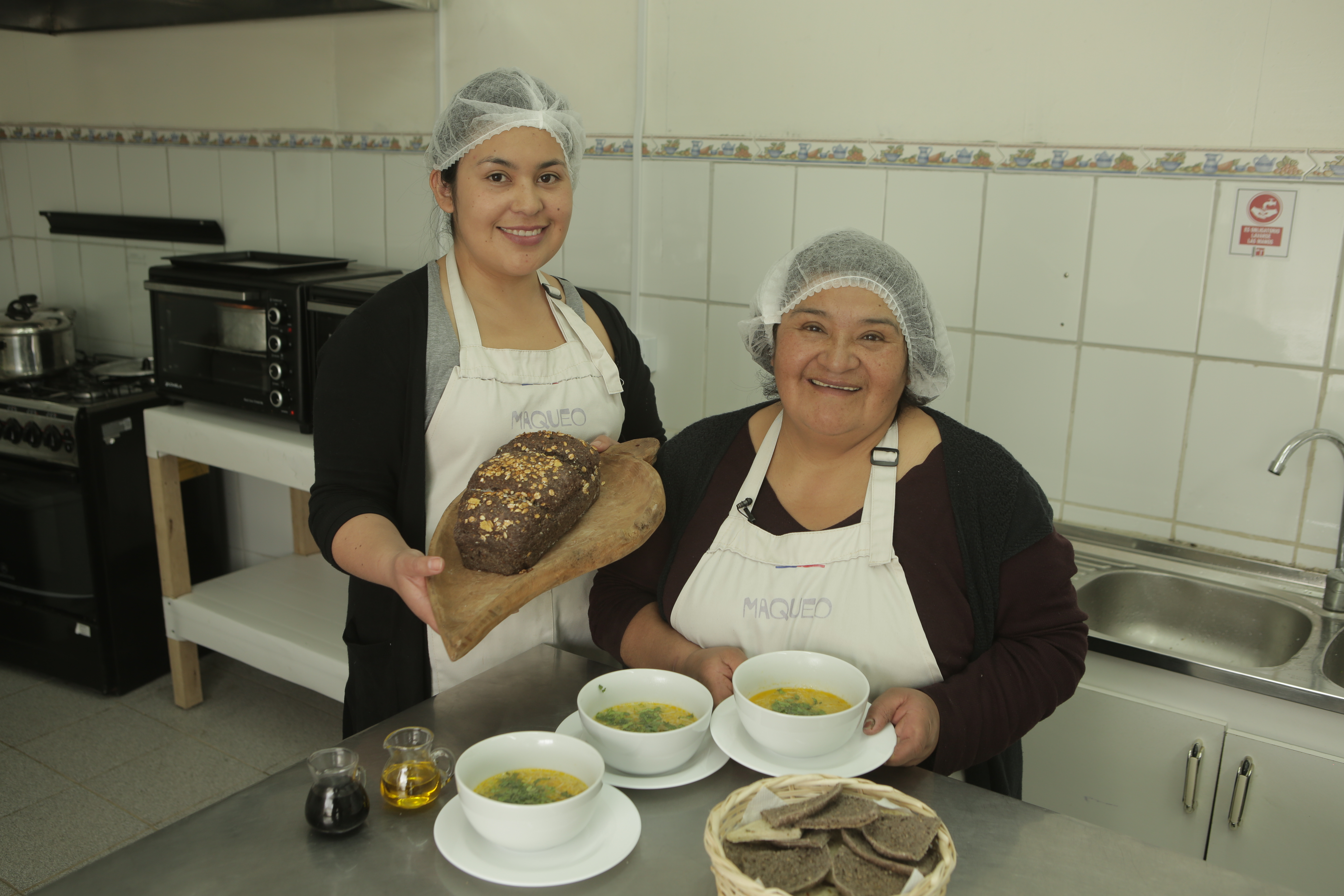
Maqueo offers the experience of visiting its café and learning about the family legacy that served as the cornerstone for this microenterprise. (© IFAD/Back to the Roots Chile)
Gastronomy is an excellent way of reclaiming flavours to preserve our planet’s ecosystems and biodiversity. IFAD considers it a priority to support initiatives that are dedicated to this cause and that proudly reflect the culinary heritage of local producers in rural areas.